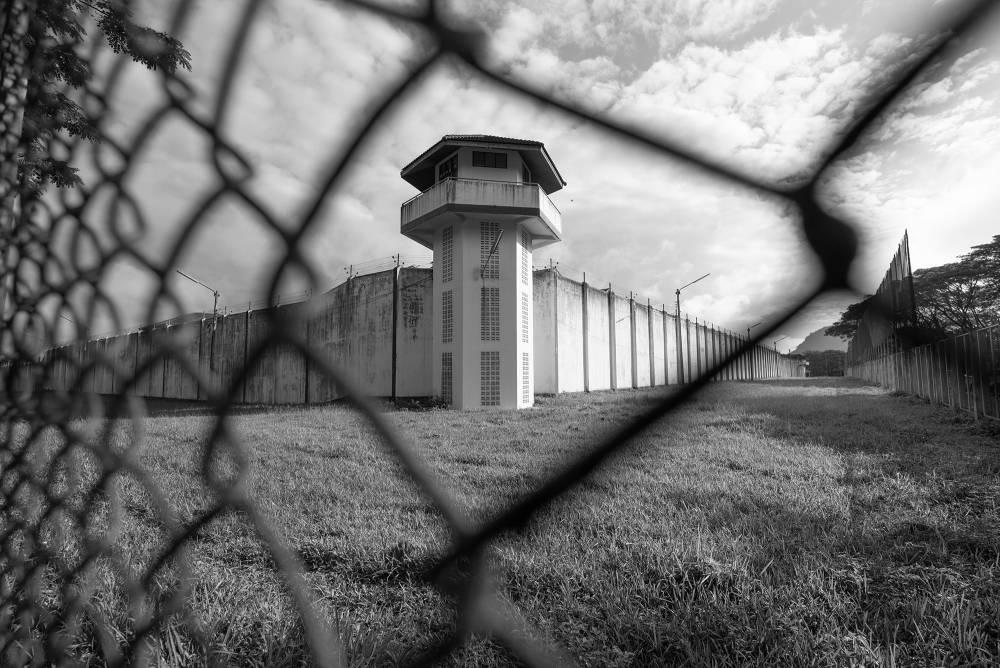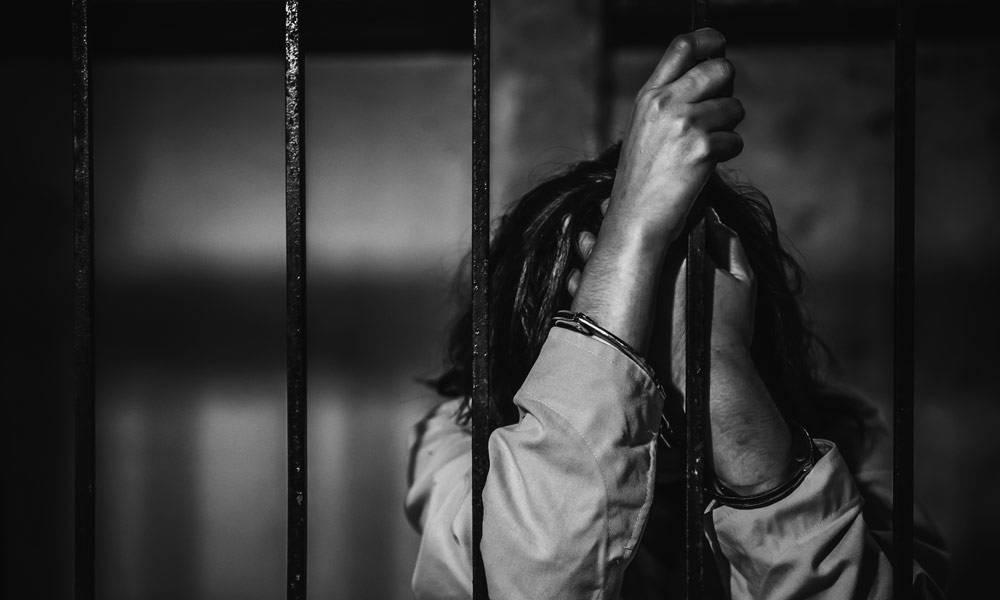Rikers Island Hunger Strike
February 4, 2022

New York’s new mayor has inherited a real human rights crisis at Rikers Island, the city’s principal jail, with desperate inmates launching hunger strikes in protest of oppressive and dangerous conditions. Promises by the previous administration to close the facility saw insufficient action, Decarceration advocates charge, but with the arrival of the Adams’ administration, the situation may be going from bad to worse.
The long campaign to close Rikers Island, an isolated East River jail complex that is New York City’s principal lock-up, has reached yet another crisis point.
The previous administration of Mayor Bill de Blasio had actually adopted decarceration rhetoric in their plan to shut down the complex by 2027. Presented as a referendum of the War on Drugs and the aggressive policing of the Giuliani era, when “Fun City” was the cannabis arrest capital of the nation, many charge the de Blasio administration with falling short of stated social justice goals. However, cannabis arrests in the city have dropped precipitously, as has the population of Rikers—from over 20,000 during the Rudy Giuliani mayoralty in the 1990s to some 5,400 today.
Cannabis arrests did continue under de Blasio—some of them quite brutal, and racial disparity persisted in the continuing – if greatly diminished – arrests.
In 2020 when COVID-19 shut-down the city, the long aftermath of economic suffering has brought an atmosphere redolent of the “bad old days” of the 1970s and ‘80s. New York’s jails and prisons are notoriously dangerous, and 16 inmate deaths last year speak to the depth of dysfunction at Rikers and the city’s other jails, some of which are under federal control.
Former Brooklyn borough president Eric Adams is the city’s second Black mayor, but also ex-NYPD. Adams leaned on tough-on-crime messaging during his campaign, and just after he was sworn in, passive resistance began to emerge among Rikers inmates – his responses have not been encouraging.
Hunger strikes amid danger and degradation
Some 200 Rikers inmates started a hunger strike on Jan. 7. The New York Times spoke to 11 detainees, who described dangerous conditions as the temperature dropped and COVID-19 continued its spread throughout the complex. Less than half of the facility’s total population is fully vaccinated.
Lack of medical care was a key grievance. City Councilmember Tiffany Cabán, whose district includes Rikers, testified before the Board of Correction in January that she spoke to an inmate who told her the only way he could see a mental health professional was if he cut himself and was placed on suicide watch. Incidents of self-harm at Rikers soared last year.
The New York Post echoed official denials. “There is no hunger strike,” a Department of Correction spokesperson told the Post Jan. 12. “A group of detainees were refusing institutional food and instead eating commissary food.”
FarmerFelon.com reached Lupe Todd-Medina, spokesperson for New York County Defender Services, a group that provides legal representation for low-income New Yorkers, and has been in touch with some strikers.
Todd-Medina said the strikes lasted about a week, during which time the inmates were not accepting food delivered to their cells (the common areas, including the mess areas, are closed as a COVID containment measure), but were “sustaining off of commissary.”
She emphasized, “Because of COVID restrictions, they were not filling the commissary, and many people in Rikers are poor or indigent, if you don’t have family providing money for you to have commissary, you don’t have commissary. So for many of them it was very, very limited food. We got calls from people who had fainted. Some got sick.”
Failure to get meals delivered to cells since the closing of the mess areas was among the grievances. “One of the complaints was not getting food regularly,” said Todd-Medina. “One guy said, ‘I only got one meal today, the forgot to bring me my meal.’”
Other grievances included no access to the exercise yard or law library—again, part of the COVID containment response. “Being able to go to the law library is important to prepare for a court date,” Todd-Medina says.
Initiators of the strike were singled out for harassment. Ervin Bowins, who was quoted in the Daily News speaking on behalf of the strikers, faced a “campaign of retaliation.” He was removed from his cell and placed in a filthy, overcrowded intake area, where guards called him a “snitch” in front of the other inmates—knowing this would result in him getting roughed up. He suffered a black eye.
Todd-Medina told us Bowins has now been transferred to the “jail barge” moored off the coast of the Bronx.
Other strikers also faced retaliation—such as getting their cells “tossed” (ransacked) in ostensible searches for drugs or contraband. Todd-Medina said the first wave of strikes ended when jail authorities met some demands, such as restoring library and yard privileges, but a new wave of hunger strikes is now threatened.
Passive resistance behind bars
The New York Post reported on January 30th that a handwritten note was circulated among inmates, urging them to go on hunger strike ahead of President Joe Biden’s planned arrival in New York in the coming week.
“[T]he courts and DOC [Department of Correction] are violating us every day, and our families are suffering for it as well,” read the letter, which is displayed in full by The Post and was reportedly distributed in food carts among inmates.
The letter accuses jail administrators of “messing with our mail, visits, recreation, medical, law library, commissary, living conditions are bad, we have mold in the housing area that can get us sick.”
It appeals for unity among the inmates to launch a facility-wide hunger strike ahead of Biden’s visit: “No matter if your [sic] gang-affiliated or neutral, were [sic] in this together! ...Lawyers are trying to get Biden to the Island, let’s do our part! (If we peacefully protest) like Martin Luther King, or Gandhi.” (Parenthesis in original)
Will Biden visit Rikers?
While it is unclear if the new hunger strikes ever started, New York County Defender Services has joined with the Legal Aid Society and other detainee advocacy groups to echo the demand that Biden visit Rikers.
The joint letter reads: “President Joseph Biden’s visit to New York City is an opportunity for this nation’s leader to witness firsthand the horrendous conditions New Yorkers endure each day on Rikers Island—conditions that should serve as a reminder of why incarceration is not a panacea for public safety concerns... We call on President Biden to visit Rikers Island and bear witness to the ongoing human rights violations against incarcerated New Yorkers.”
So far, media have only reported that Biden will visit the New York Police Department headquarters, to discuss responses to the so-called crime wave with Adams and NYPD brass.
Is Adams a step backwards?
Among the worrying steps since Adams became mayor is a move by newly appointed Correction Commissioner Louis Molina to sack the department’s head of investigations—who had won praise from advocates (and ire from the Corrections Officer’s union) for aggressively tackling thousands of backlogged use-of-force cases.
Deputy Commissioner for Intelligence & Investigation Sarena Townsend undertook this work in collaboration with the independent monitor appointed by a federal court in 2015 in response to a class-action suit by inmates. She was immediately asked to step down by Molina after he took over, and a replacement has not yet been named.
Even before taking office, Adams won harsh criticism for his call to reinstate use of solitary confinement as a punishment at Rikers—a practice that de Blasio had been working to put an end to by his final day in office, Dec. 31.
“They better enjoy that one-day reprieve because January 1st they are going back into segregation if they committed a violent act,” Adams said at a press conference announcing the appointment of Molina Dec. 16. The quip elicited laughter from an audience that included officials from the guards’ union, Gothamist reported.
‘Rife with violence’
A June 2021 report by the court-appointed monitor for the city Correction Department, found “a system that is rife with violence and disorder.” The 12th Report of the Nunez Independent Monitor (named for the inmate class-action suit) found: “Data on uses of force, fights, stabbings, and slashings among people in custody and assaults on staff reveal that 2021 has been the most dangerous year since the Consent Judgment went into effect.”
The majority of those held at Rikers are pretrial detainees. Authorities maintain that nobody is currently in on a cannabis-related charge. But among the 15 inmates who died at the facility in 2021 (out of 16 who died in the city’s jails), at least one was locked up following a pot bust. Isaabdul Karim, 42, who died in the facility’s infirmary Sept. 19, was in for a parole violation after he was arrested for cannabis possession in 2018.
Following last year’s passage of the Marijuana Taxation & Regulation Act in Albany, cannabis arrests are considerably less likely. But the ongoing nightmare at Rikers Island is stark testimony to how much work remains to be done for activists in the Empire State.
Related Articles
 Atlanta Rapper Faces Sentencing on Federal Cannabis "Conspiracy" Charge
Atlanta Rapper Faces Sentencing on Federal Cannabis "Conspiracy" ChargeAtlanta rapper Terrell Davis, better known by his stage-name Ralo, has been held for nearly four yea...
 The Long, Racist History of Cannabis Prohibition
The Long, Racist History of Cannabis ProhibitionAs the world screams “Black Lives Matter!,” many institutions are looking inward to examine their ro...

